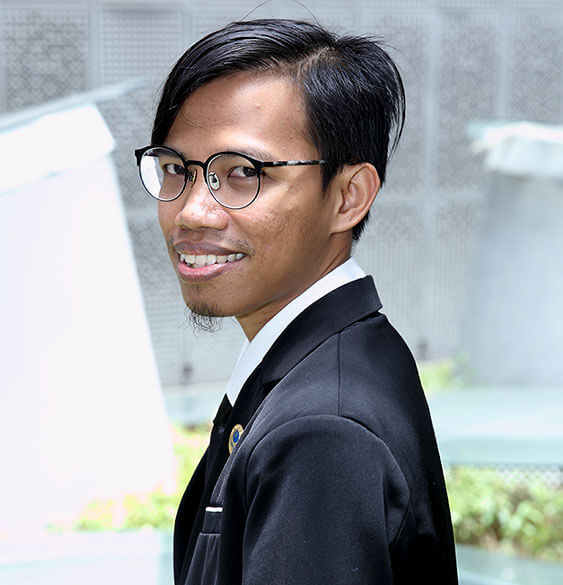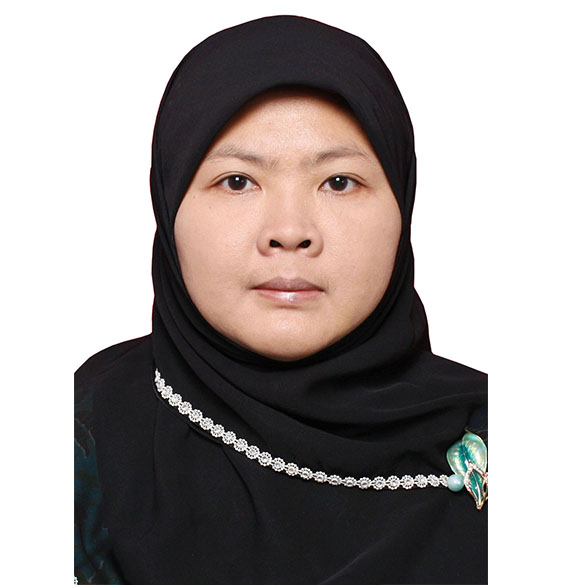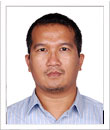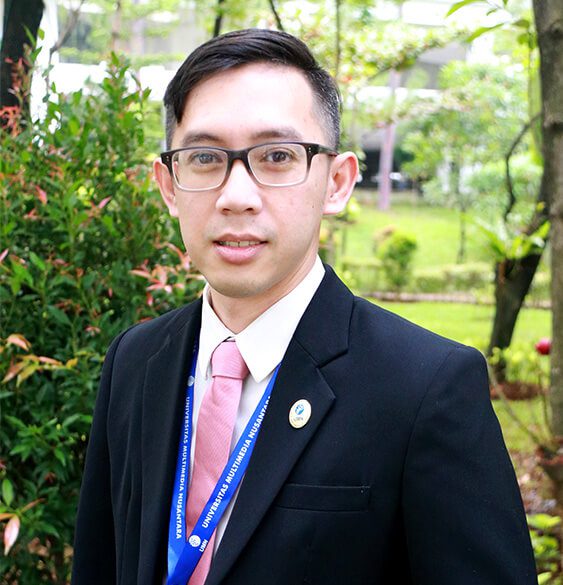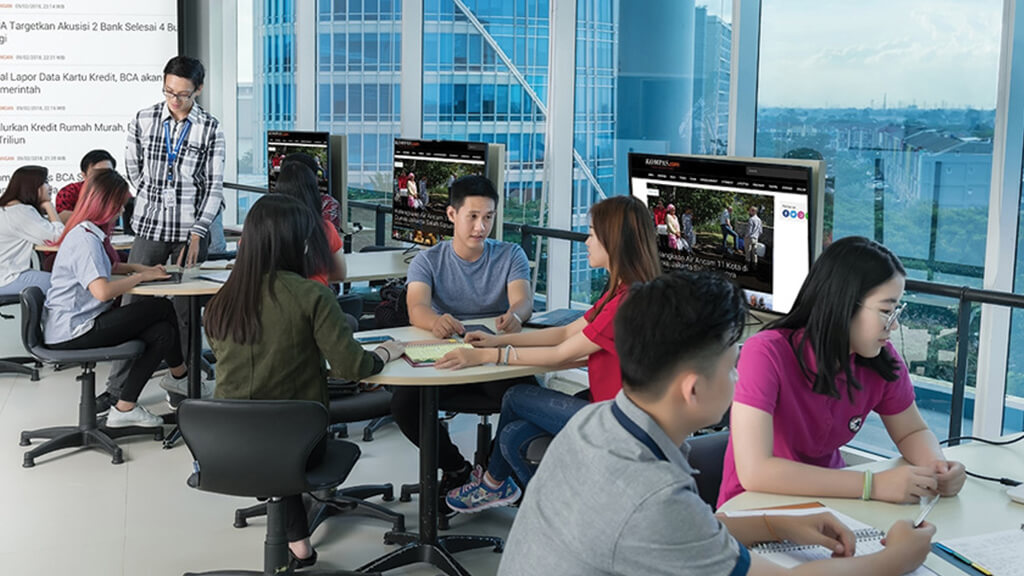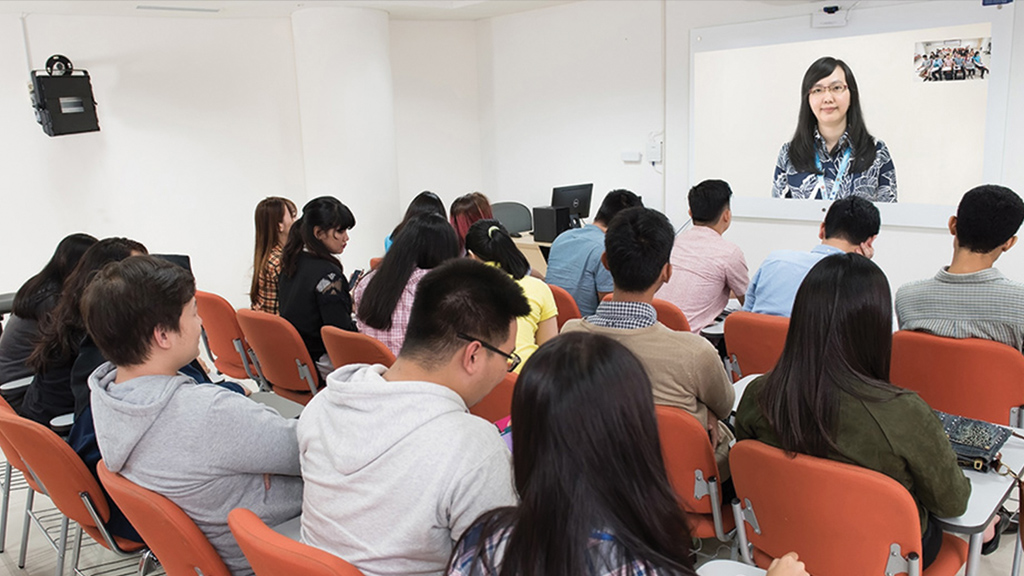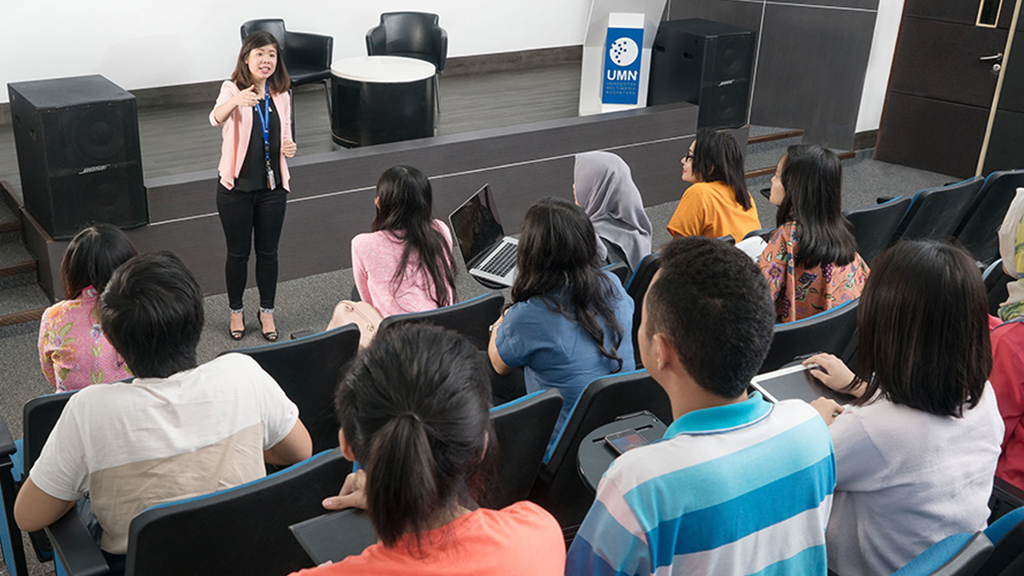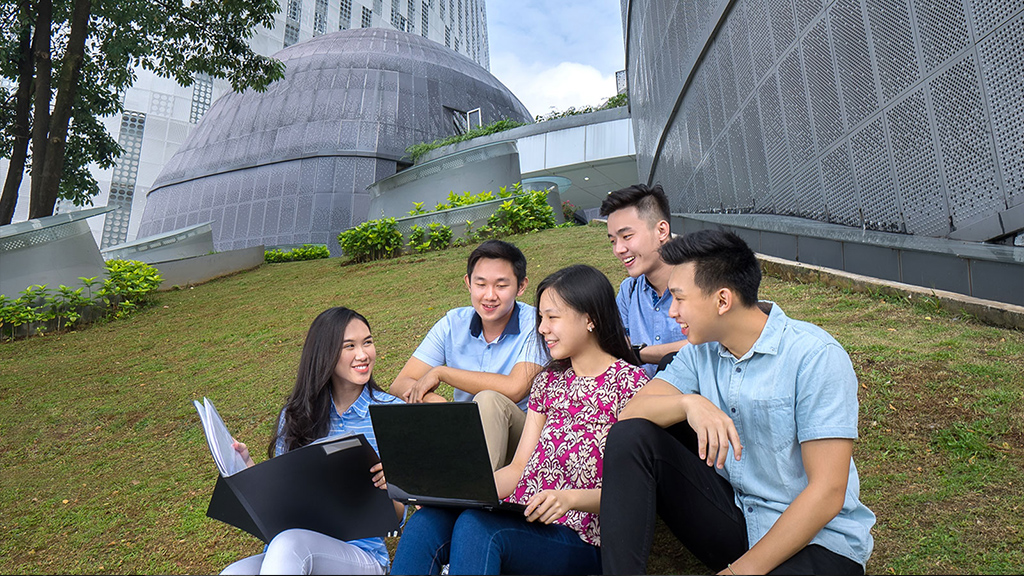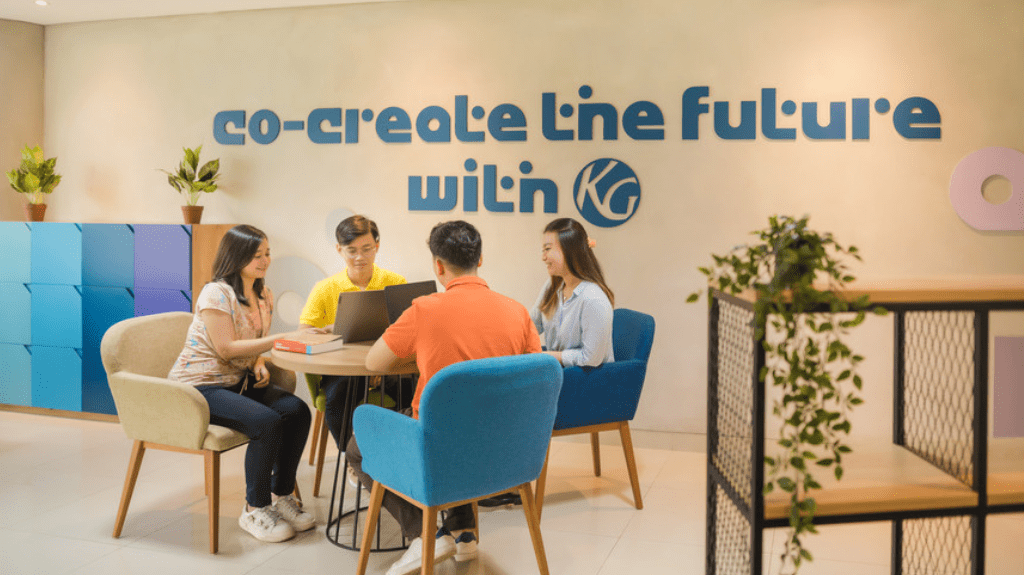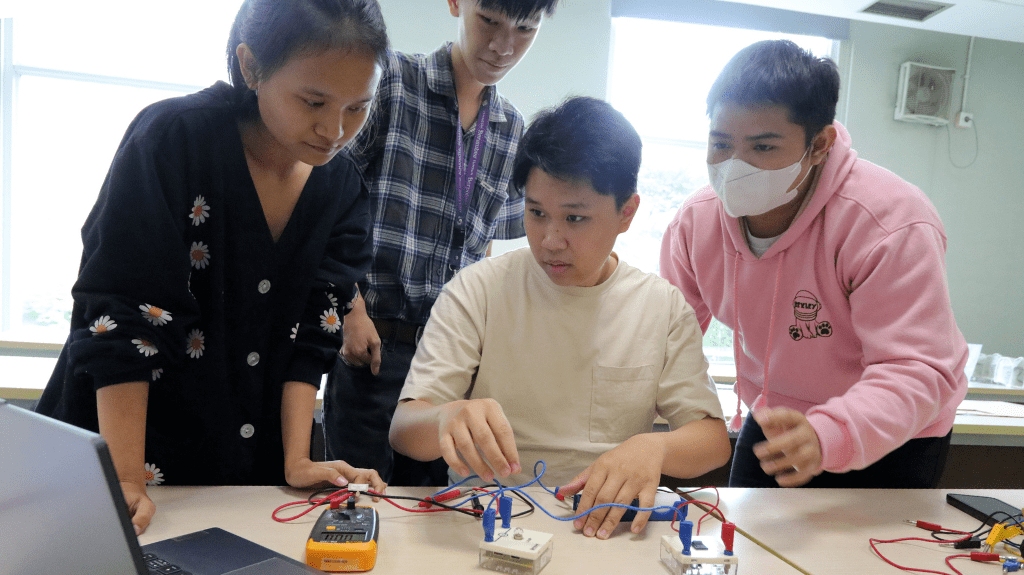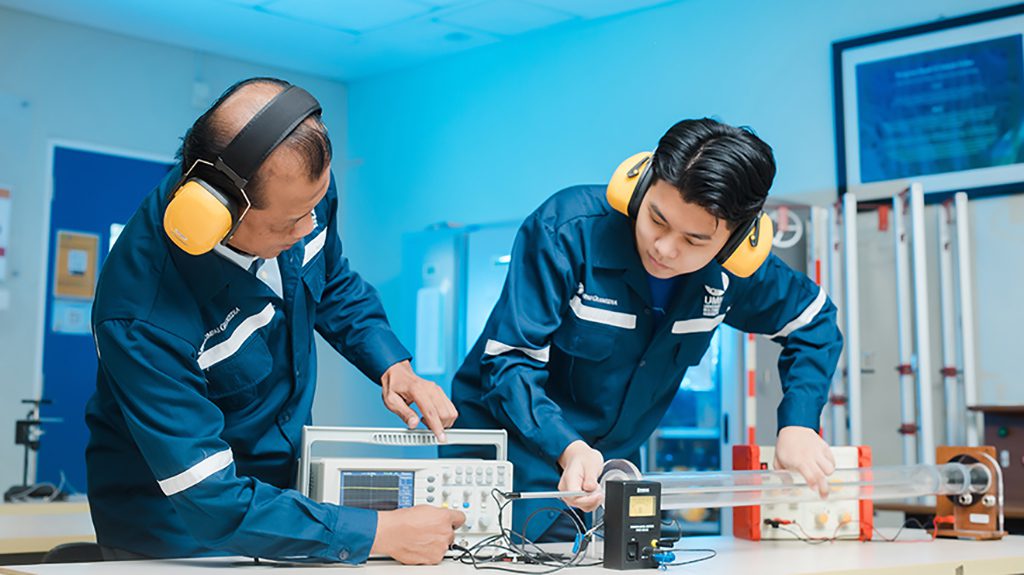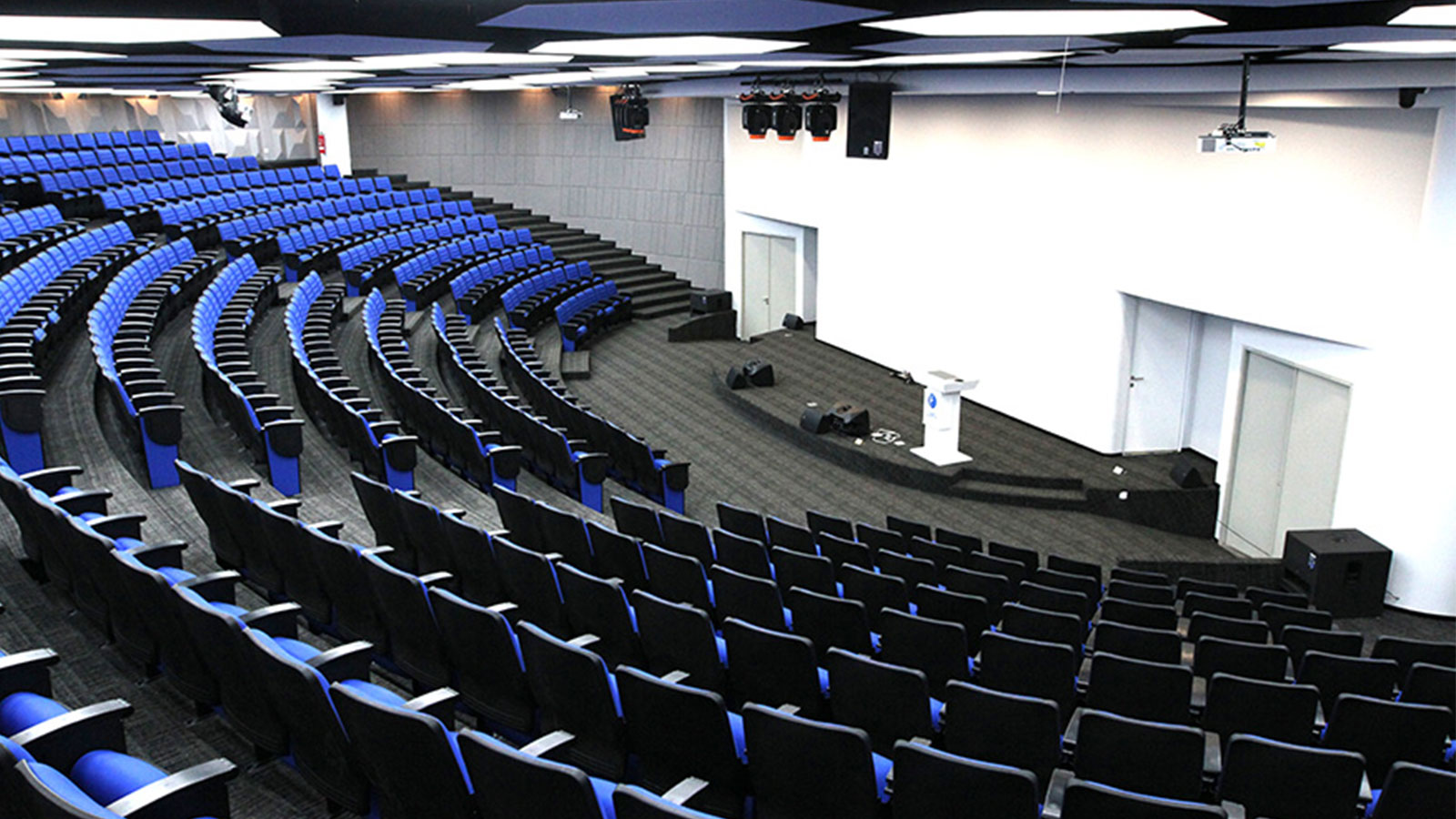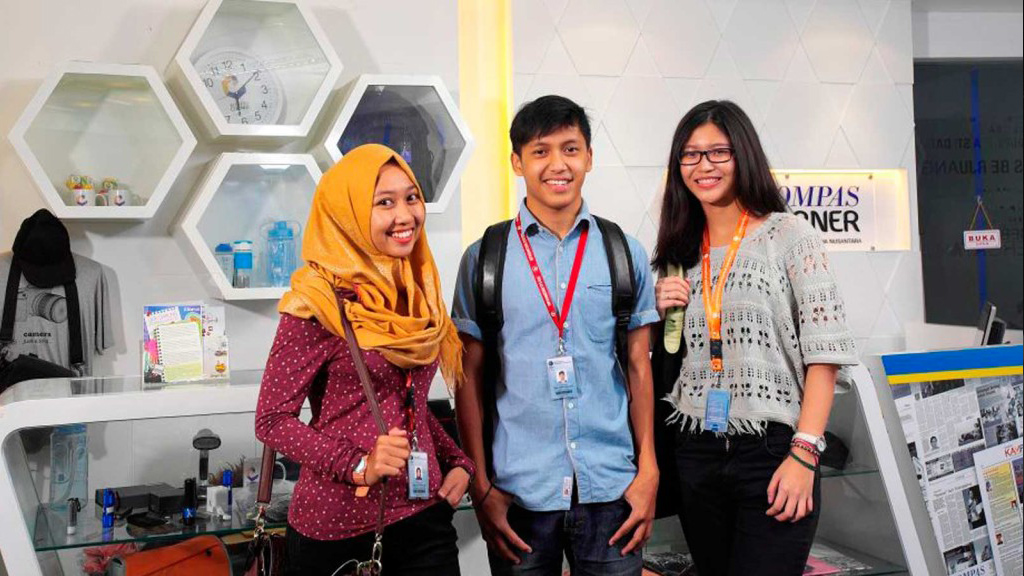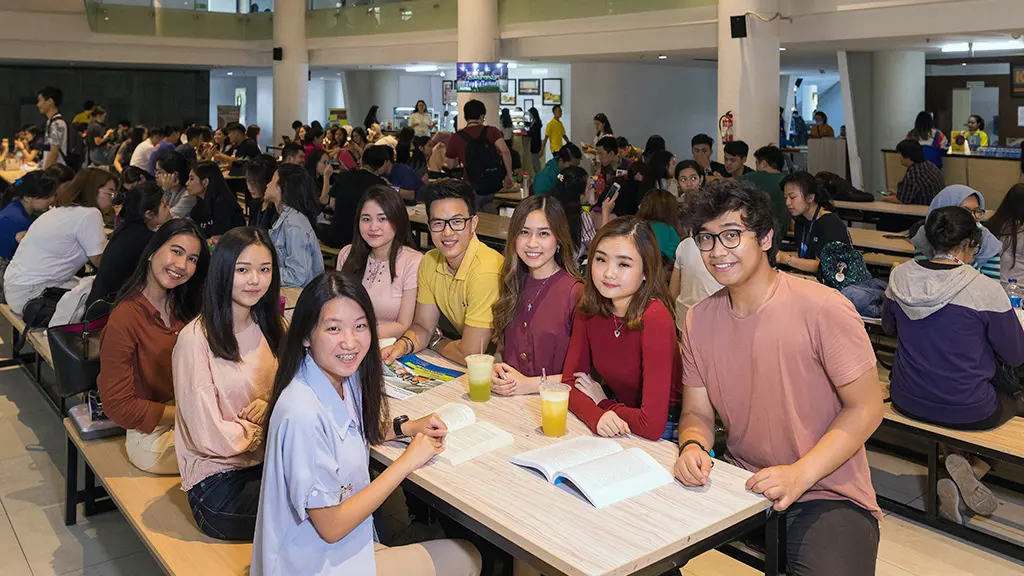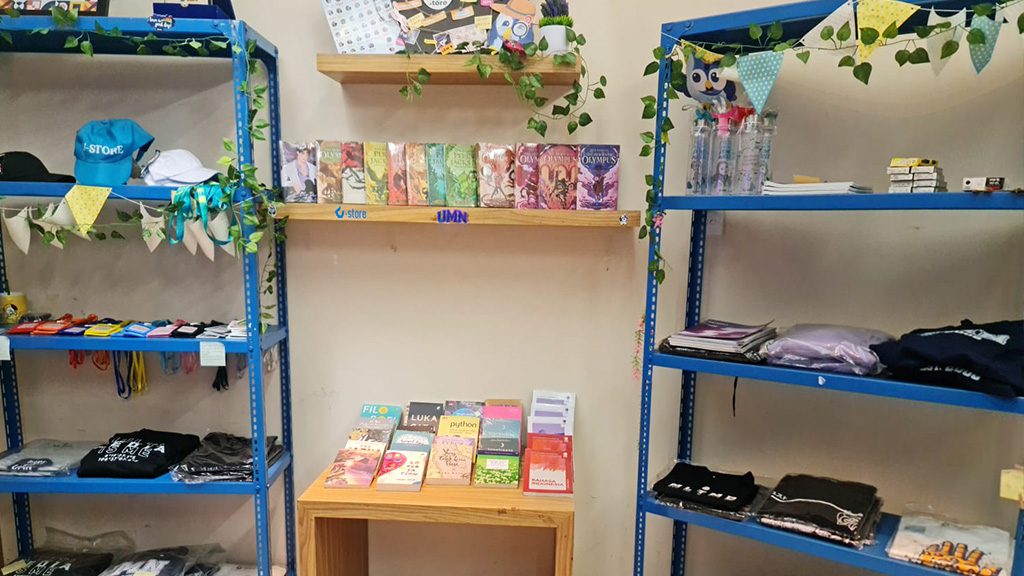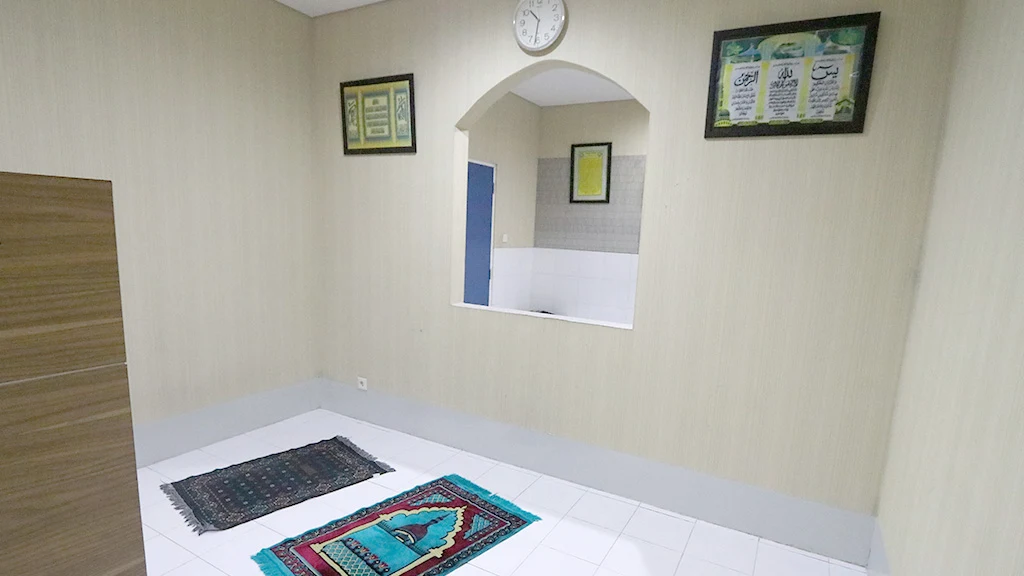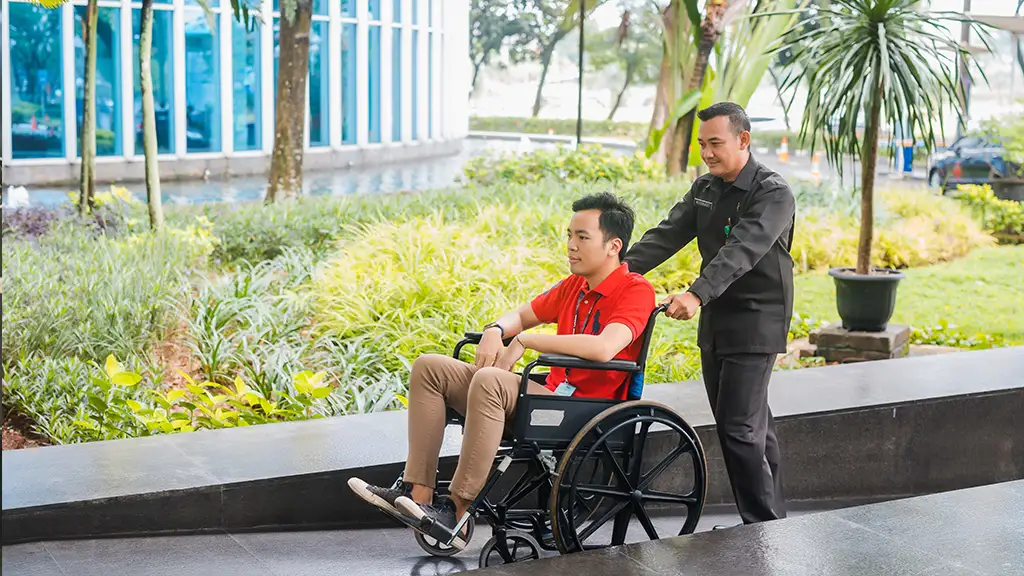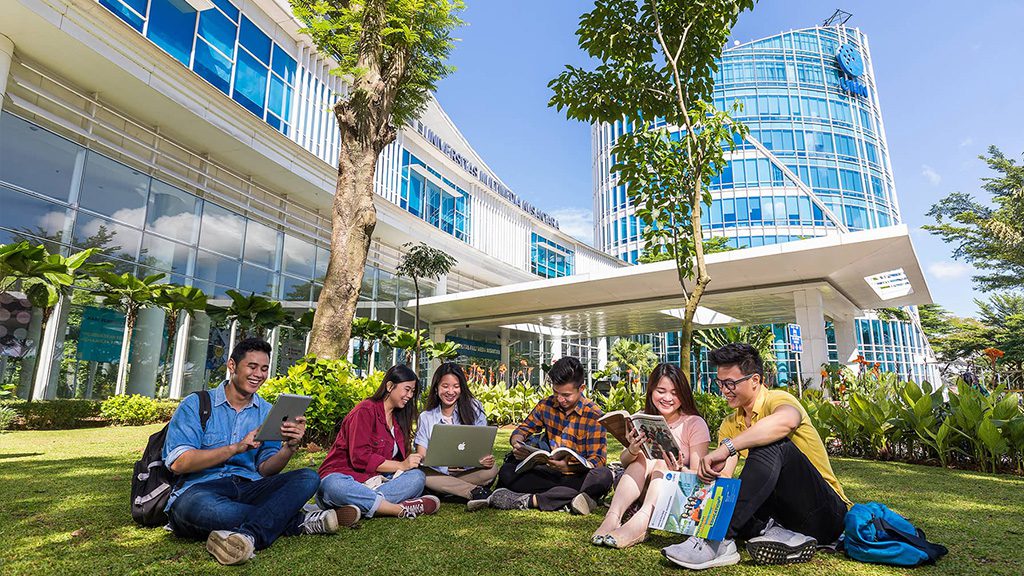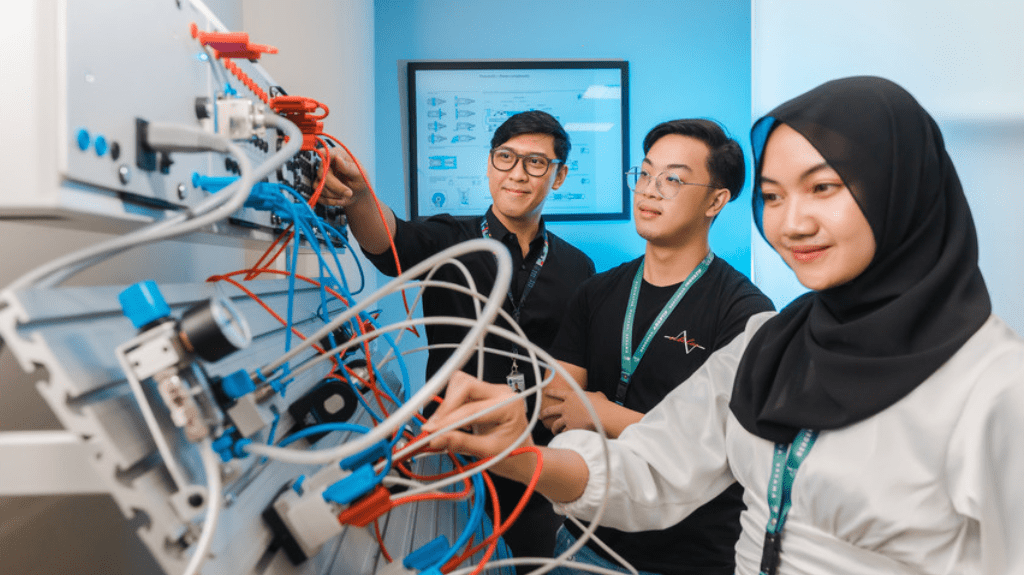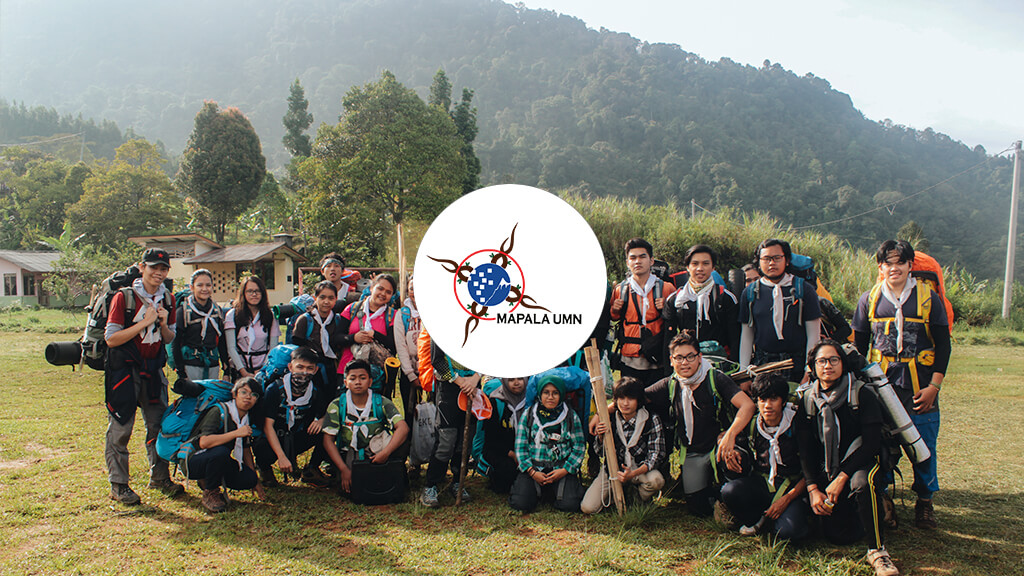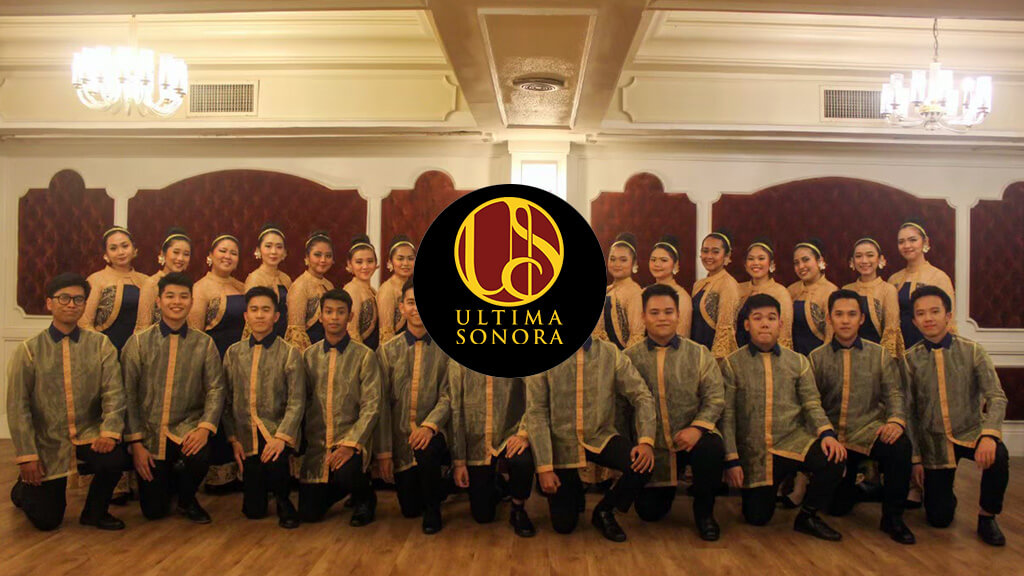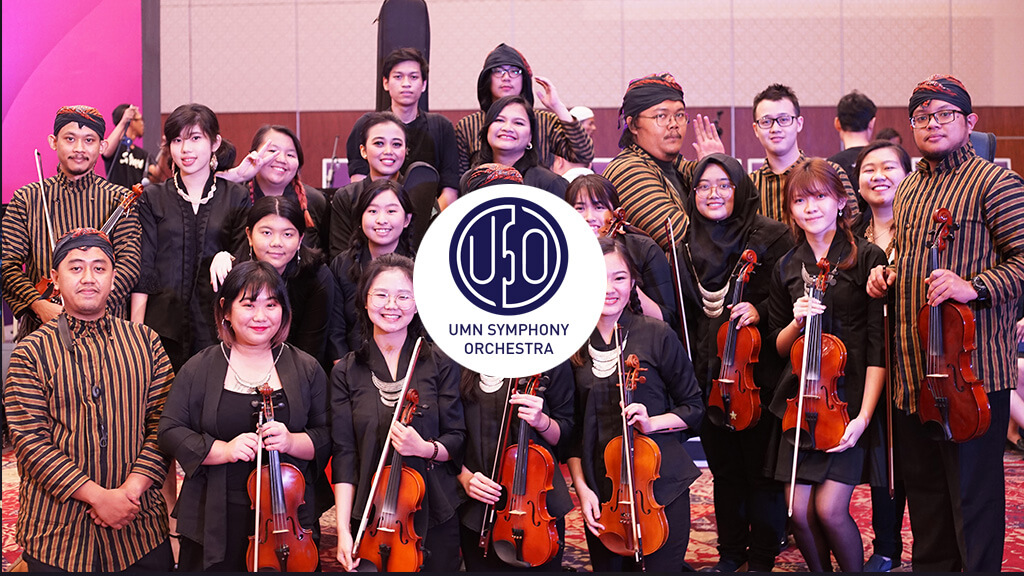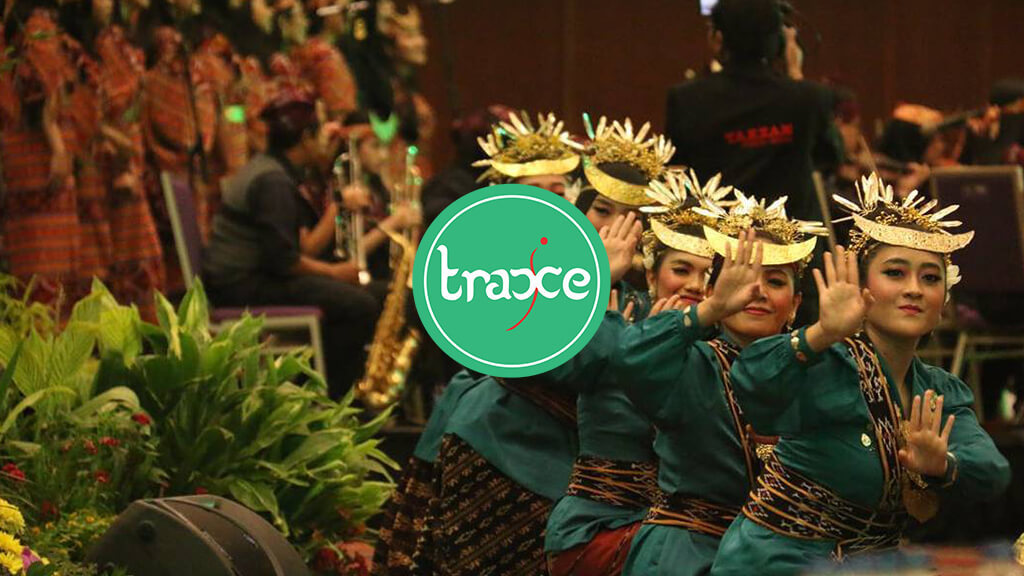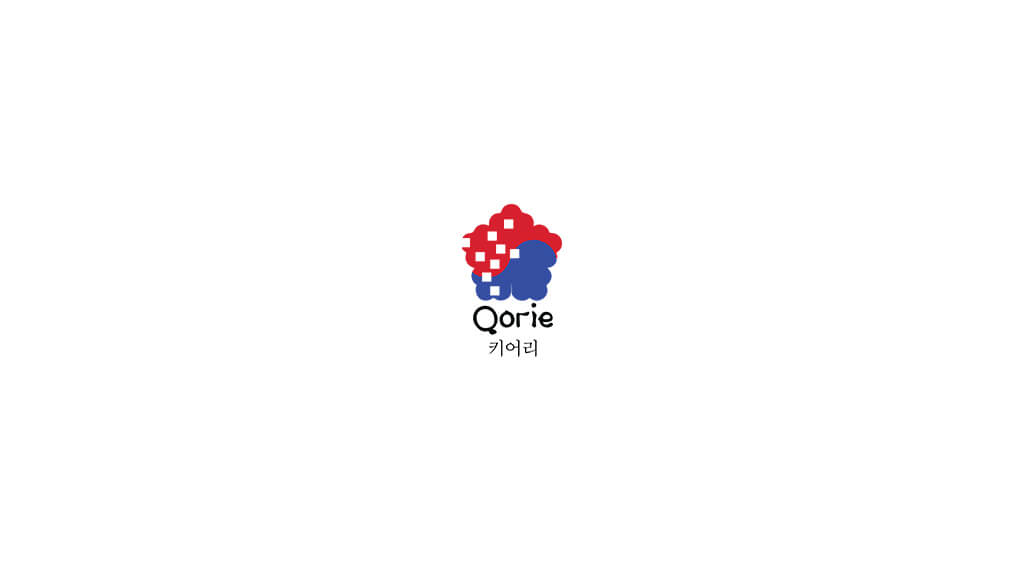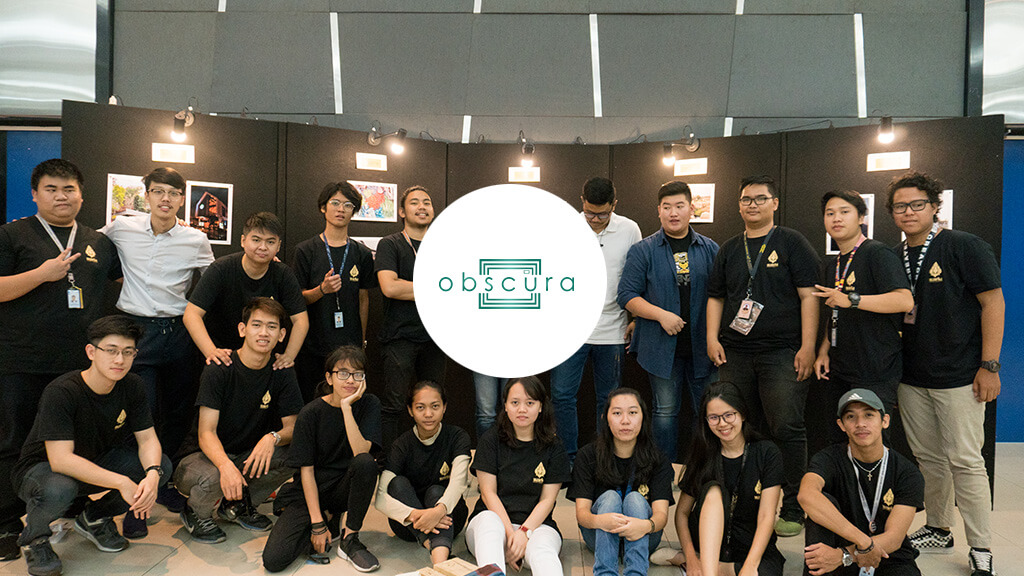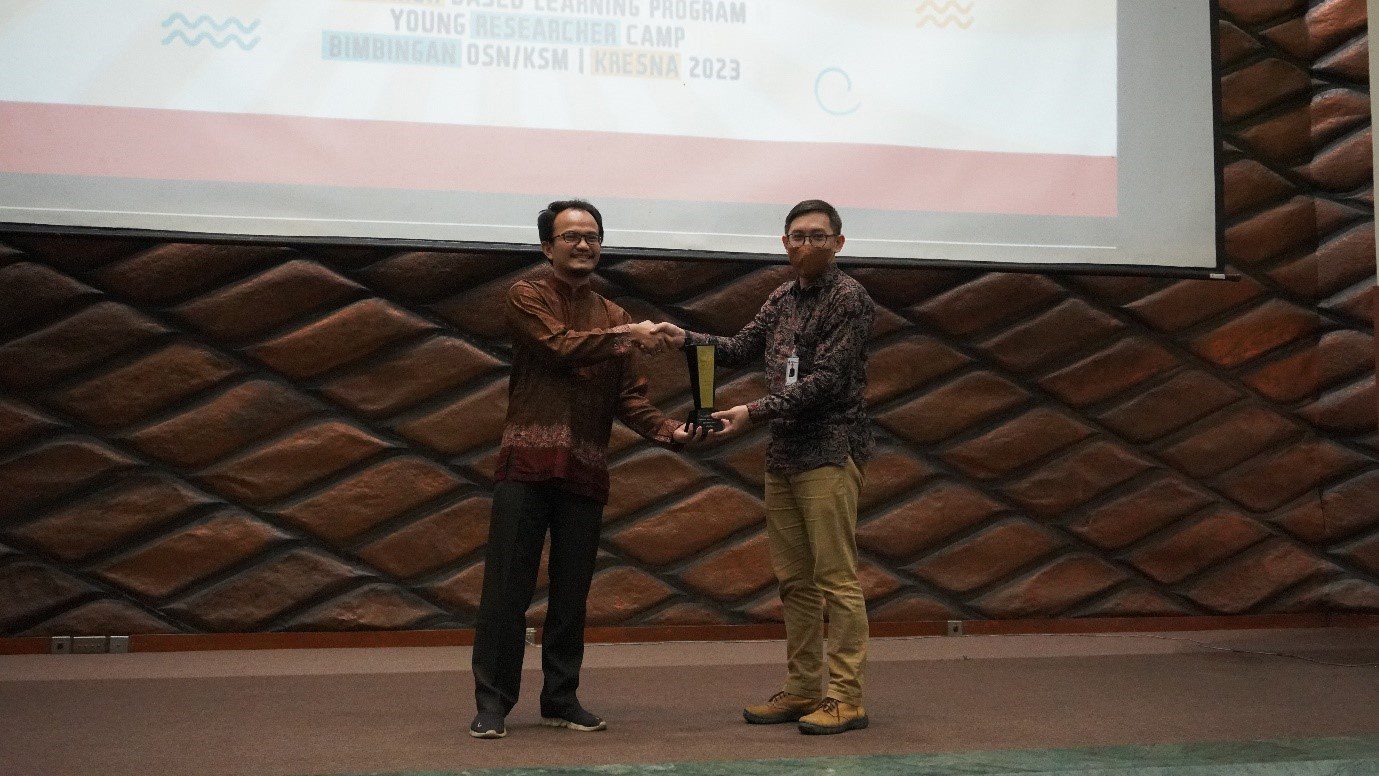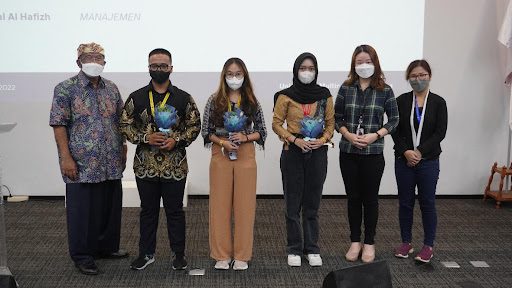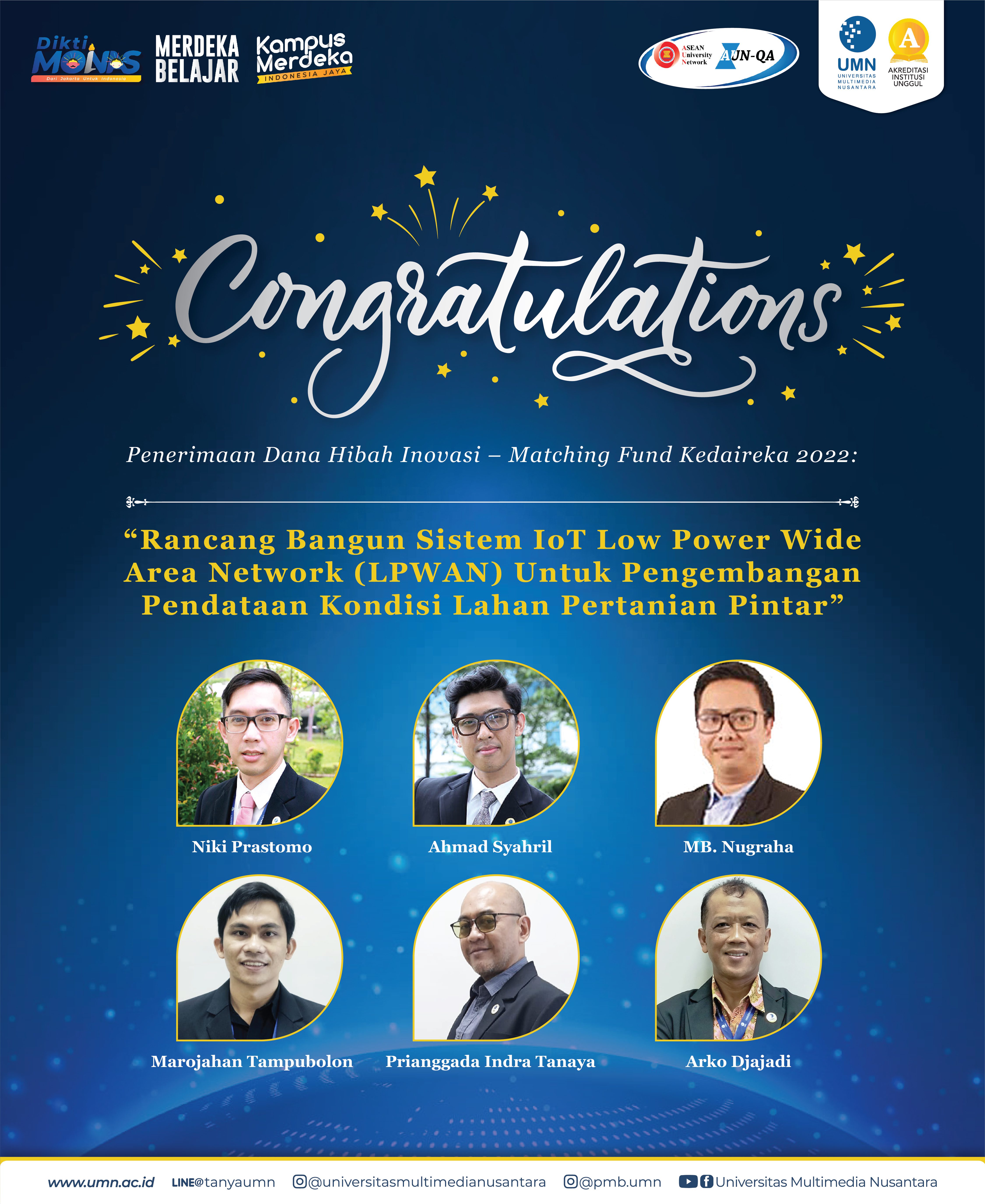Undergraduate Program in
Engineering Physics
What is Engineering Physics?
Physical engineering is a science of engineering combined with such basic sciences as mathematics, physics, and chemistry. Through this study program students will learn about the application of physical science to the use and harness of energy in daily life. For example, to use the principles of physics to build an energy-efficient, environmentally efficient building by installing a solar panel on the roof. In this case, the umn physics technique presents asa vessel for students to deflate the application of physics in energy use to deal with the future industry.
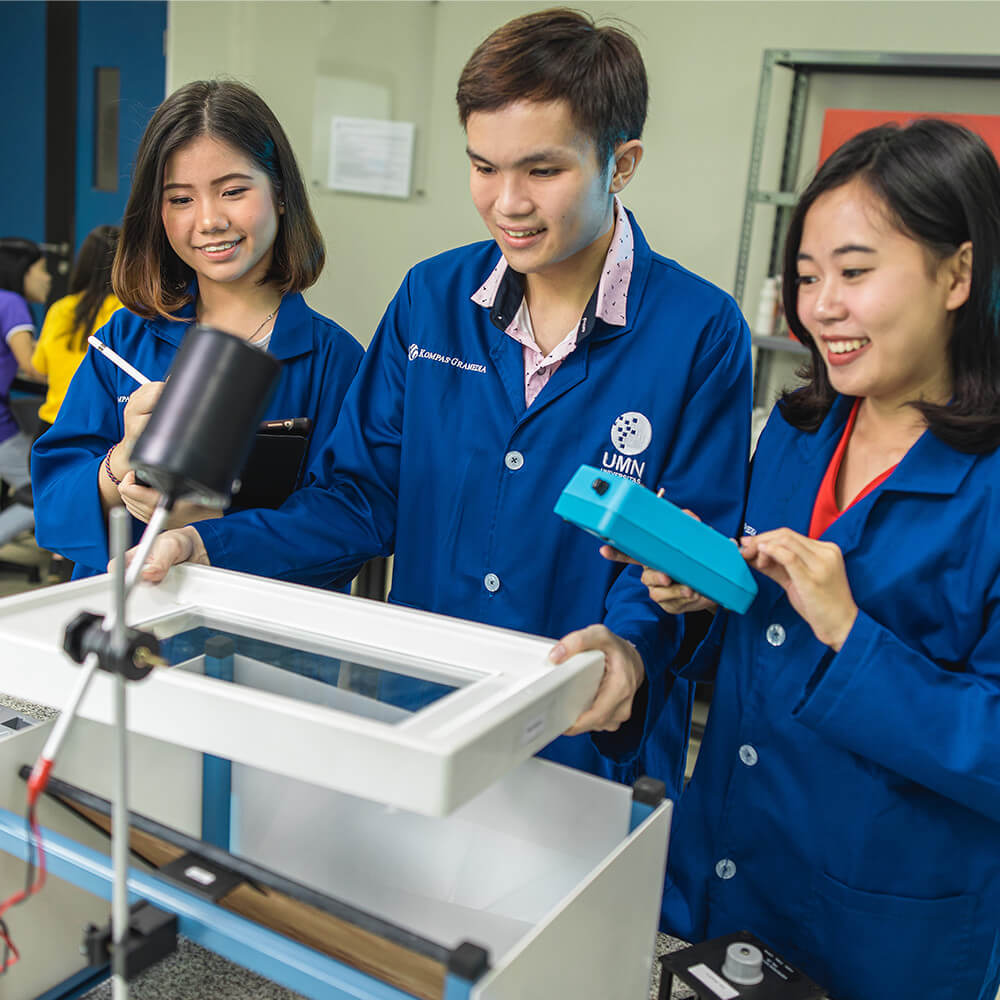
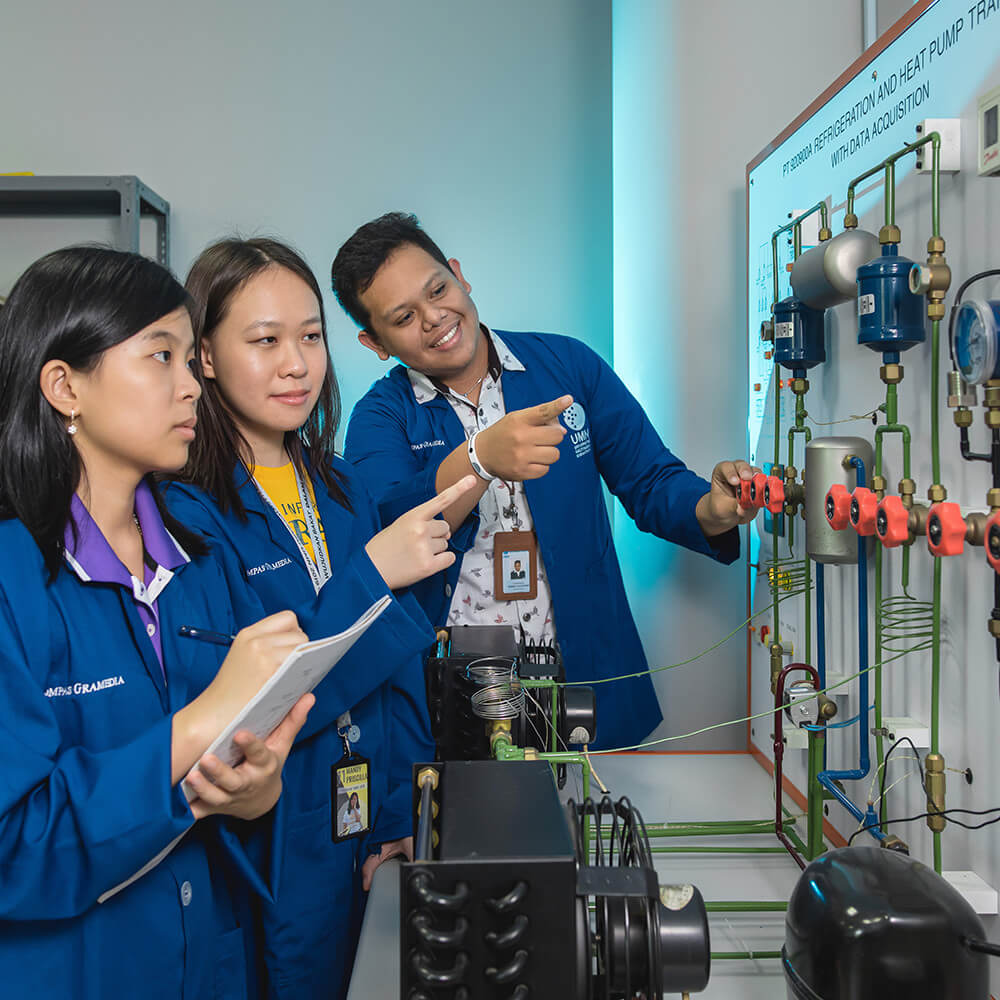
Why Choose UMN’s Engineering Physics?
Umn’s Engineering Physics studies are supported by highly supportive means and infrastructure, one of them is the new media tower and oetama tower of multimedia nusantara university, two of which have earned a national and international energy-efficient building recognition. This makes it an ideal building for students to study engineering physics in the energy use of a building. Through the building will help students understand and learn about energy – efficient buildings directly.
General Information
| ECTS Points | 146 SKS |
| Education Type | Bachelor Program |
| Duration | 4 years |
| Language | Bahasa Indonesia |
| Bachelor's Degree | Bachelor of Engineering |
Vision & Mission
Vision
Becoming a single superior strategy study program that results in an internationally insightful graduate of engineering physics, noble in spirit and virtuous in self-interest.
Mission
- To conduct higher education to produce human resources that are highly competent in Engineering Physics, especially in building physics, to promote the industrial development in Indonesia
- To fulfill the need of engineers to promote the economic development in Indonesia.
- To establish a partnership with industry to provide solution for industry’s needs for engineering physics experts
- To develop research in energy efficient building directing to innovation or discovery of new technologies.
- To conduct society services in education to improve the people’s awareness of the importance of energy efficiency and environmentally friendly concepts in building houses and buildings.
Specialization / Focusing / Concentration
In the Physics Engineering Study Program, students have the opportunity to deepen their expertise through three core disciplines: Energy Management, Building Physics, and Instrumentation. These areas are integrated to equip students with interdisciplinary competencies that are highly relevant to today’s modern industries—particularly in the fields of sustainability and smart technology.
These competencies are further developed through two main specializations:
Green Building Specialist and Renewable Energy.
Green Building Specialist
This specialization equips students to become experts in the design and management of environmentally friendly buildings and industries. Students will gain competencies in topics such as energy audit and conservation, Building Information Modeling (BIM), Indoor Air Quality (IAQ), thermal and lighting engineering, smart control and building automation, as well as green building/industry certification processes.
Renewable Energy
This specialization prepares students to develop and implement renewable energy technologies, covering areas such as photovoltaic (PV) systems, renewable energy data analysis, battery and energy storage technologies, electric vehicles (EVs), and energy economics and policy.
Career Prospect
Graduates can work in industry in both energy production and development. Some of these job profiles include:
- Building Energy Efficiency Specialist
- Environmentally Sustainable Development (ESD) Engineer
- High Performance Building Engineer
- Building Automation Engineer
- Renewable Energy Engineer
Further Study
- Scientific Expertise – Has the ability to use knowledge of mathematics, science and engineering.
- Experimental Training – Has the ability to design and carry out experiments, as well as to analyze and interpret data of experiments.
- Design Abilities – Has the ability to design systems, components or processes to fit the needs of realistic boundaries.
- Teamwork – to work together on a team of similar and different science disciplines.
- Problem Solving – to identify, Formulating and solving these problems of professional intimacy.
- Professional Responsibility – having a firm understanding of professional ethics.
- Communication Skill – has the ability to communicate effectively.
- Societal Impact – has the broad insights needed to understand the impact of engineering solutions in a global, economic, environmental context, And social.
- Long-life Learning – has a high awareness of vital importance and the need for lifelong study
- Contemporary Issues – has knowledge and understanding of the issues developing
- Technical know-how – has the ability to utilize technical methods, simulations, As well as other recent specialized skills used in entrepreneurship activities
- Entrepreneurship – Have an alternative ability to develop businesses from technological and engineering development
Graduate Profile
Lulusan diharapkan menjadi tenaga ahli di bidang Teknik Fisika yang memahami dan menguasai pengetahuan dan kemampuan terkait ilmu fisika, sains, matematika dan kerekayasaan serta dapat memberikan solusi terhadap permasalahan yang ada di masyarakat terkait bidang yang dikuasainya dengan berpegang kepada kode etik profesi yang dijalani.
Independent Professional Profile
Kemampuan yang diupayakan oleh lulusan Program Studi Teknik Fisika Universitas Multimedia Nusantara setelah 3-5 tahun bekerja yaitu:
- Menjadi profesional yang mampu memanfaatkan keilmuan teknik fisika beserta keahlian teknologi komunikasi dan informasi dengan memiliki karier sukses baik dalam bidang kerekayasaan, akademik ataupun kewirausahaan;
- Menjadi individu yang mampu mengembangkan diri sebagai upaya untuk terus menerus belajar sepanjang hayat baik melalui pendidikan formal akademik, profesi lanjut ataupun studi mandiri dalam mendukung kemajuan kariernya;
- Menjadi pribadi unggul yang turut berperan serta dalam usaha mengatasi ragam permasalahan di masyarakat baik secara lokal maupun global, namun tetap mengedepankan nilai humaniora, komunikasi interpersonal, etika profesi serta memerhatikan dampak terhadap kondisi sosial, ekonomi dan lingkungan.
Curriculum
Mahasiswa Teknik Elektro UMN akan mempelajari mengenai sistem kendali, robotika industri, mekatronika hingga sistem kendali cerdas selama masa studi di Teknik Elektro UMN. Secara umum, kurikulum Teknik Elektro UMN dapat dijelaskan sebagai berikut.
Tahun 1 : mahasiswa akan mempelajari mengenai pemahaman dasar – dasar keteknikan, matematika rekayasa, dan kalkulus. Selain itu, di tahun pertama ini mahasiswa akan diperkenalkan dengan struktur data dan algoritma.
Tahun 2 : mahasiswa akan mempelajari mengenai dasar – dasar teknik elektro, material elektro, dan dasar sistem kontrol. kemudian , mahasiswa juga akan mulai dikenalkan dengan sistem digital dan pemrograman.
Tahun 3 : mahasiswa akan mempelajari mengenai berbagai jenis sistem seperti sistem tenaga listrik, sistem sistem pengendali digital, sistem pengendali multivariabel dan desain sistem tertanam. Tidak hanya itu, di tahun ketiga ini mahasiswa akan dibekali dengan pengetahuan seputar etika – etika keteknikan.
Tahun 4 : mahasiswa akan mempelajari apa yang menjadi fokus dari program studi Teknik Elektro UMN, yakni sistem kendali, robotika industri, mekatronika, dan technopreneurship untuk mempersiapkan agar mahasiswa dapat menjadi seorang wirausaha di bidang teknologi. Pada tahun ini, mahasiswa akan melakukan kegiatan magang di perusahaan-perusahaan manufaktur hingga startup besar serta menjadi tahun persiapan untuk mengerjakan proyek tugas akhir.
Entry Requirement
- Lulusan SMA jurusan IPA
- Lulusan SMK jurusan Teknik Ketenagalistrikan, Energi dan Pertambangan, Teknik Pendingin dan Tata Udara, Teknik Mesin, Teknik Komputer, Teknik Elektronika, Mekatronika, Instrumentasi.
Partnership & Collaborations
The Physics Engineering Study Program at UMN actively builds strategic partnerships with various professional associations in the field, including the Indonesian Association of Physics Engineers (BKTF-PII), the Indonesian Consortium of Physics Engineering (BKSTF), and other organizations focusing on green building and sustainable built environments. Through participation in these forums, UMN’s Physics Engineering Program contributes to the development of professional competency standards, national certification systems, curriculum design, and the promotion of scientific publications and academic exchange in the field.
In terms of certification and competency development, UMN collaborates with the Green Building Council Indonesia (GBCI) to help students gain knowledge and certifications related to green buildings. Additionally, cooperation with institutions such as ICT Literacy strengthens students’ digital and technological proficiency.
Further collaborations with government bodies like the Directorate General of New, Renewable Energy and Energy Conservation (EBTKE) of the Ministry of Energy and Mineral Resources, NGOs, and industry partners support academic activities while enriching student experience through real-world exposure to current issues and best practices in energy, environment, and applied technology. These efforts align with UMN Physics Engineering’s commitment to equipping graduates with relevant, adaptive, and globally competitive professional competencies.
Connection between PPM and CPL
Korelasi Profil Profesional Mandiri dan Capaian Pembelajaran Lulusan
| PPM | CPL | |||||||||||
| A | B | C | D | F | G | H | I | J | K | L | ||
| PPM-1 | √ | √ | √ | √ | √ | √ | ||||||
| PPM-2 | √ | √ | ||||||||||
| PPM-3 | √ | √ | √ | √ |
Capaian Pembelajaran Lulusan terhadap Kerangka Kualifikasi Nasional Indonesia Jenjang 6
| Uraian Kualifikasi KKNI Jenjang 6, berdasarkan Peraturan Presiden Republik Indonesia No. 8 Tahun 2012 tentang KKNI | CPL yang berkesesuaian |
| Mampu mengaplikasikan bidang keahliannya dan memanfaatkan ilmu pengetahuan, teknologi, dan/atau seni pada bidangnya dalam penyelesaian masalah serta mampu beradaptasi terhadap situasi yang dihadapi. | (A), (C), (E), (H), (I), (J), (K), (L) |
| Menguasai konsep teoritis bidang pengetahuan tertentu secara umum dan konsep teoritis bagian khusus dalam bidang pengetahuan tersebut secara mendalam, serta mampu memformulasikan penyelesaian masalah prosedural. | (A), (B), (C), (E), (K) |
| Mampu mengambil keputusan yang tepat berdasarkan analisis informasi dan data, dan mampu memberikan petunjuk dalam memilih berbagai alternatif solusi secara mandiri dan kelompok. | (D), (E), (G), (H) |
| Bertanggung jawab pada pekerjaan sendiri dan dapat diberi tanggung jawab atas pencapaian hasil kerja organisasi. | (F), (I) |
General Information
| ECTS Points | 146 SKS |
| Education Type | Bachelor Program |
| Duration | 4 years |
| Language | Bahasa Indonesia |
| Bachelor's Degree | Bachelor of Engineering |
Student Scholarships
Jalur beasiswa UMN diberikan bagi siswa-siswi SMA Kelas XII yang memiliki prestasi akademik, olah raga, dan kesenian pada saat di kelas XI. Selain itu, UMN memberikan kepada siswa-siswi SMA/SMK yang memiliki prestasi mendapatkan medali pada Olimpiade Sains Nasional dan Internasional.. Sebagai wujud penghargaan atas pengabdian para guru dan para karyawan/staff dalam mendidik anak bangsa, UMN memberikan beasiswa berupa pengurangan uang pangkal sebesar 50% bagi anak guru/kepala sekolah dan pengurangan uang pangkal sebesar 30% bagi anak karyawan/staff di sekolah SMA/SMK Negeri/Swasta yang ingin melanjutkan pendidikan di UMN.
Entry Requirement
- Lulusan SMA jurusan IPA
- Lulusan SMK jurusan Teknik Ketenagalistrikan, Energi dan Pertambangan, Teknik Pendingin dan Tata Udara, Teknik Mesin, Teknik Komputer, Teknik Elektronika, Mekatronika, Instrumentasi.
Students are required to attend academic advising sessions at least three times per semester. The schedule for these sessions will be provided by each student’s academic advisor. The UNION – UMN Companion app must be activated during each academic advising session and approved by the assigned academic advisor.
Continuing Education Department (CED) adalah program pengembangan pendidikan di Universitas Multimedia Nusantara (UMN) yang merupakan bagian dari Grup Kompas Gramedia. Kami memiliki berbagai program dalam kursus bahasa, pengembangan manusia, Pusat Pengujian untuk sertifikasi nasional dan internasional, dan program pelatihan. CED UMN dirancang untuk memenuhi kebutuhan siswa sekolah menengah dan perguruan tinggi, serta masyarakat dan profesional.
Students are encouraged to find their own companies / agencies for their internships that align with the focus of the Engineering physics Study Program i.e. Industrial Automation. Information about available internships can be obtained from other students, social media, job fairs, advertisements in print or electronic media or even through the UMN Career Development Center (CDC).
To complete the undergraduate (Bachelor’s/S-1) program at Universitas Multimedia Nusantara, students are required to prepare, present, and defend a final project (tugas akhir) before an examination board, in accordance with the regulations of their study program. The final project is conducted individually and supervised by an academic advisor chosen by the student and approved by the supervisor. If the project is part of a larger group topic, each student must present a distinct area of discussion. In the Physics Engineering Program at UMN, the final project is categorized into three types: thesis-based, scientific article-based, and the PRO-STEP program-based project.
To support the learning process, umn provided a complete and sophisticated college facility, according to industrial standards. Through the existence of the facility, students have been invited to be close to the industrial world since sitting in college and to have competence that matches the needs of the industry. That way, it will make it easier for umn students to find jobs, even before graduation.
Extracurricular Student Activities
In order to help students explore and develop their non-academic potentials, UMN also provides a variety of extra-curricular activities for students which is locally called UKM, Student Activity Unit.

SEE OTHER
UMN’S STUDENT ACTIVITIES
Penelitian Hibah DIKTI - TF
Rekapitulasi Penelitian Internal - Teknik Fisika
Daftar Kegiatan PKM Dosen
Rekapitulasi Inovasi Hak Cipta - Teknik Fisika
CERTIFICATION
Green Building Training
UMN collaborates with Green Building Council Indonesia (GBCI) to conduct Greenship Associate training and certification at UMN every beginning of December. This training is a facility for UMN Physics Engineering students as well as the outside community to gain learning experience and also certification in the field of green building. For further information on this training, please contact ced[at]umn.ac.id.
Information Literacy
Information literacy is an ability that individuals have in determining, searching, managing and evaluating information effectively and efficiently. This training is open to UMN active students. For further information, please contact: library.umn.ac.id
Kuliah di UMN itu mengesankan. Fasilitasnya bagus, dosennya berkualitas dan kegiatan kemahasiswaannya banyak banget. Saya mendapatkan beasiswa OSC (Online Scholarship Competition) UMN dan mengikuti ON MIPA (Olimpiade Nasional Matematika dan Ilmu Pengetahuan Alam) untuk memperdalam Ilmu Fisika.
Mandy Priscilla
Mahasiswa Teknik Fisika
Engineering Physics
Engineering physics UMN has become a member of several associations in the field of engineering physics such as the PII Physics Engineering Vocational Agency (BKTF), the Indonesian Physics Engineering Cooperation Agency (BKSTF), and the Institute of Electrical and Electronics Engineers (IEEE). Together with these associations, UMN Physics Engineering is involved in discussions related to professional development, certification, and curricula, as well as the publication of papers in the field of engineering physics.

